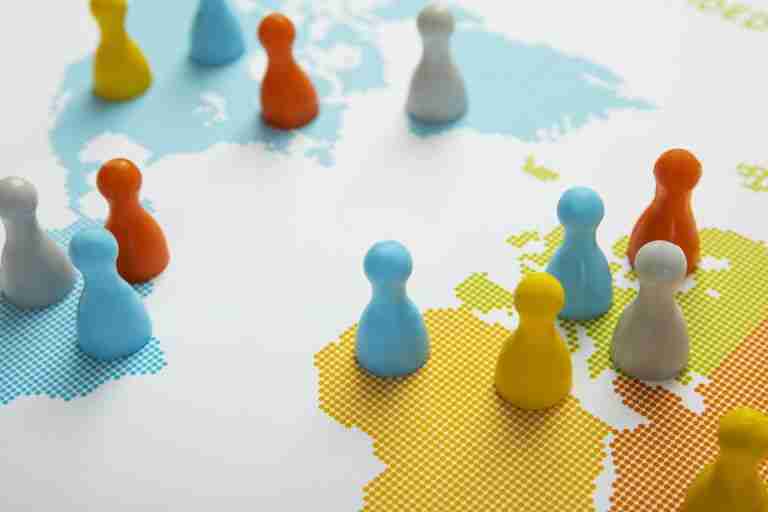The global geopolitical landscape is marked by complex dynamics that significantly influence international relations and legal frameworks. Navigating through this intricate web of international politics and law requires a nuanced approach. Our objective with this blog is to examine the current geopolitical conflicts and diplomatic endeavors. We aim to unpack the intricacies of these issues, providing valuable insights.
Geopolitical Hotspots and Its Scope
Geopolitical hotspots are regions where political, economic, and military interests converge, often leading to heightened tensions and conflicts. These areas are characterized by their strategic importance on the global stage and their potential to influence international relations significantly. Understanding these hotspots is crucial for experts in international law and diplomacy, as they often form the backdrop against which global policies and agreements are crafted. The analysis of geopolitical dynamics in these areas enables legal and diplomatic professionals to anticipate challenges, navigate complex international legal frameworks, and formulate strategies that foster global peace and cooperation. Recognizing and interpreting the undercurrents in these hotspots is key to effective decision-making in the interconnected world of international relations.
Current Geopolitical Conflicts
The current global landscape is marked by several major conflicts, notably in the Middle East, Eastern Europe, and Asia, each presenting unique challenges and complexities. These conflicts not only have profound legal implications, often involving breaches of international law and human rights, but also significantly impact global stability and international relations. The ripple effects are felt worldwide, influencing diplomatic ties, economic policies, and global security. Understanding these conflicts and their legal nuances is essential for fostering a more stable international community and paving the way for peaceful resolutions. The way these situations are navigated legally and diplomatically will shape the future of international relations.
The Role of Diplomacy in Resolving Conflicts
Diplomacy plays a pivotal role in resolving international disputes, acting as the linchpin for peaceful negotiations and conflict resolution. Historical case studies, such as the Cuban Missile Crisis resolution or the Iran Nuclear Deal, exemplify the power of diplomatic efforts in averting potential crises. However, these negotiations are often fraught with challenges, including differing national interests, political pressures, and cultural misunderstandings. Despite these hurdles, the pursuit of diplomatic solutions remains a crucial and often effective strategy in the complex tapestry of international relations. The success of these efforts not only resolves immediate conflicts but also sets a precedent for future international cooperation.
Legal Perspectives on International Conflicts
International conflicts are intricately tied to the legal realm, with international courts and tribunals playing a crucial role in adjudicating disputes and upholding justice. These institutions operate within a complex web of legal frameworks that govern conflict resolution and are pivotal in maintaining international order. These frameworks, including treaties and customary international law, provide the foundation upon which diplomatic efforts are built and negotiated. The influence of international law is profound, shaping the strategies and outcomes of diplomatic negotiations. It ensures that such efforts are not just politically but also legally sound, thereby contributing to a more just and stable international community.
The Role of Lawyers in Geopolitical Conflicts
In geopolitical conflicts, lawyers play a multifaceted and critical role. They are at the forefront of legal advocacy, championing human rights and ensuring that international laws are respected. Beyond the courtroom, their expertise is invaluable in consulting and advising roles, assisting governments and international organizations in navigating the complex legalities of international relations. Notable examples of their significant contributions include advising on peace treaties, drafting international agreements, and representing marginalized groups in international courts. This involvement of legal professionals is not just about applying legal principles; it’s about actively shaping a world where justice and order prevail in the face of conflict.
Conclusion
In conclusion, the intricate web of geopolitical conflicts presents complex challenges that require a deep understanding of international law and diplomacy. Legal expertise is not only fundamental in comprehending these conflicts but is also pivotal in resolving them. Lawyers and legal scholars play an essential role in advocating for human rights, advising governments, and shaping international policies. As we navigate this ever-changing geopolitical landscape, the need for informed legal intervention remains paramount. It is imperative for legal professionals to remain engaged and proactive, continually expanding their knowledge and applying their skills to promote peace and justice on the global stage.
Want to learn more about geopolitics and law? Check out https://bronx-injury-lawyers.com.

